Related Research Articles
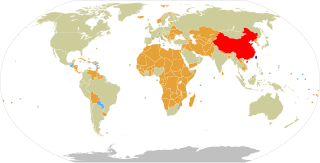
Taiwan, formally known as the Republic of China (ROC), currently has formal diplomatic relations with 12 of the 193 United Nations member states and with the Holy See, which governs Vatican City, as of 14 January 2024. In addition to these relations, the ROC also maintains unofficial relations with 59 UN member states, one self-declared state (Somaliland), three territories, and the European Union via its representative offices and consulates under the One China principle. In 2021, the government of the Republic of China had the 33rd largest diplomatic network in the world with 110 offices.
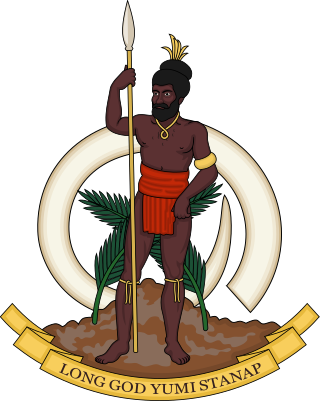
Vanuatu maintains diplomatic relations with many countries, and it has a small network of diplomatic missions. Australia, France, Japan, New Zealand, the People's Republic of China, South Korea and the United Kingdom maintain embassies, High Commissions, or missions in Port Vila. The British High Commission maintained a continued presence for almost a century, though closed from 2005 until reopening in 2019.

Nauru, following independence from the United Kingdom, became a sovereign, independent republic on 31 January 1968. Nauru has established diplomatic relations with a number of nations, including most of its Pacific neighbors with which it maintains economic, cultural and administrative ties.
From 1916 to 1975, Tuvalu was part of the Gilbert and Ellice Islands colony of the United Kingdom. A referendum was held in 1974 to determine whether the Gilbert Islands and Ellice Islands should each have their own administration. As a consequence of the referendum, the separate British colonies of Kiribati and Tuvalu were formed. Tuvalu became fully independent as a sovereign state within the Commonwealth on 1 October 1978. On 5 September 2000, Tuvalu became the 189th member of the United Nations.
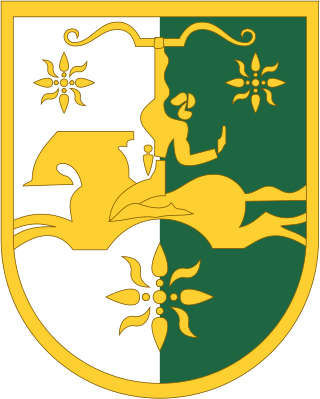
The Republic of Abkhazia is a partially recognized state in the South Caucasus which declared independence from Georgia during the War in Abkhazia (1992–1993). At the time, the Soviet Union had recently collapsed (1991).

The Republic of South Ossetia – the State of Alania is a partially recognized state in the South Caucasus that declared independence from Georgia during the South Ossetia War (1991–1992). At the time, the Soviet Union had only just recently collapsed. Since 1991, South Ossetia has sought recognition as a sovereign state from the international community. South Ossetia is considered by most of the international community to be a part of Georgia.

Oceania is, to the People's Republic of China and the Republic of China, a stage for continuous diplomatic competition. The PRC dictates that no state can have diplomatic relations with both the PRC and the ROC. As of 2019, ten states in Oceania have diplomatic relations with the PRC, and four have diplomatic relations with the ROC. These numbers fluctuate as Pacific Island nations re-evaluate their foreign policies, and occasionally shift diplomatic recognition between Beijing and Taipei. The issue of which "Chinese" government to recognize has become a central theme in the elections of numerous Pacific Island nations, and has led to several votes of no-confidence.

Abkhazia and South Ossetia are disputed territories in the Caucasus. Most countries recognise them as part of Georgia, while Russia, Venezuela, Nicaragua, Nauru, and Syria regard them as independent. Russia's initial recognition of the independence of Abkhazia and South Ossetia occurred in the aftermath of the Russo-Georgian War in 2008. The government of Georgia considers the republics to be Russian-occupied territories.

Nauru–Russia relations are the bilateral relations between Nauru and Russia. Russia is represented in Nauru through its embassy in Canberra (Australia).

The Republic of Kiribati and the People's Republic of China (PRC) established diplomatic relations on June 25, 1980, and resumed on September 27, 2019. Between 2003 and 2019, The government of Kiribati recognized the Republic of China, and, in accordance with the "One China" policy, the People's Republic of China did not have diplomatic relations to the country.
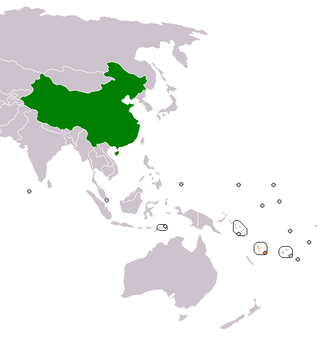
The Republic of Vanuatu and the People's Republic of China (PRC) established official diplomatic relations on March 26, 1982. China established an embassy in Vanuatu in 1989, while Vanuatu established an honorary consulate in China in 1999; it officially became an embassy in 2005. The current Ambassador of China in Vanuatu is Liu Quan. The current Ambassador of Vanuatu in China is former Minister of Finance Willie Jimmy.

The Milk War was a trade conflict between Russia and Belarus in June 2009. Russia and Belarus have close relations and the conflict stemmed from Russia allegedly attempting to pay Belarus US$500 million to recognize the independence of Abkhazia and South Ossetia. Russia also expressed its interest in privatizing the Belarusian milk industry. Belarus responded by seeking negotiations with the European Union on certifying Belarusian milk according to EU regulations. Russia then banned the import of dairy products from Belarus, citing alleged health concerns. The trade conflict ended on June 17, 2009, when Russia announced that it would lift the ban.
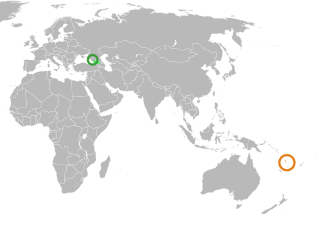
Abkhazia and Vanuatu established relations when Vanuatu recognised Abkhazia's independence on 23 May 2011. On that day a joint statement on establishment of diplomatic relations was signed. However, the exact nature of the recognition was a matter of dispute and was not regularized until July 2013. However, over the years and part of domestic powerplay within Vanuatu's government, the recognition has swung back and forth. In 2019 Vanuatu's minister of Foreign Affairs "confirmed Vanuatu’s support of Georgia’s sovereignty and territorial integrity" and effectively withdrew the recognition of Abkhazia.

Abkhazia–Nauru relations refers to the bilateral foreign relations between the Republic of Abkhazia and Nauru. Relations were established between the states on 14 December 2009, in the aftermath of the 2008 Russo-Georgian War, which saw Abkhazia gain partial international recognition.

Abkhazia–Tuvalu relations refers to bilateral relations between the Republic of Abkhazia and Tuvalu. Tuvalu recognized Abkhazia's independence on 18 September 2011. Tuvalu has since withdrawn its recognition on 31 May 2014 and has established diplomatic ties with Georgia.
References
- ↑ Young, Audrey (October 19, 2007). "Chequebooks brought out at Pacific forum". The New Zealand Herald . Retrieved September 23, 2011.
- ↑ Bullough, Oliver (2014-04-02). "This Tiny Pacific Island Nation Just Gave Russia a Big Bruise". New Republic. Retrieved 2016-02-26.